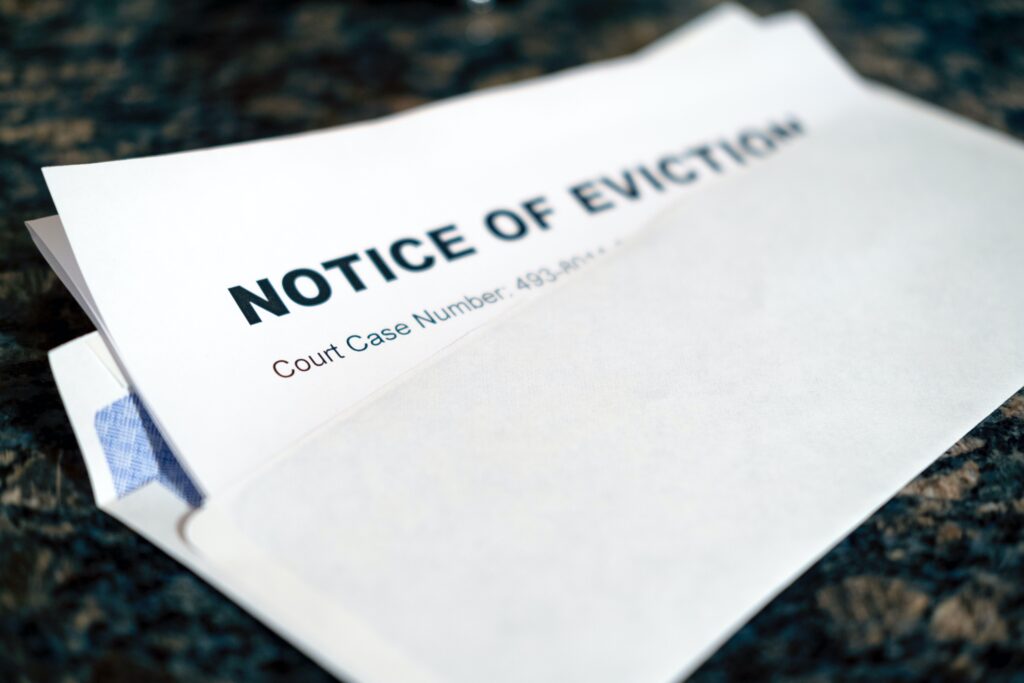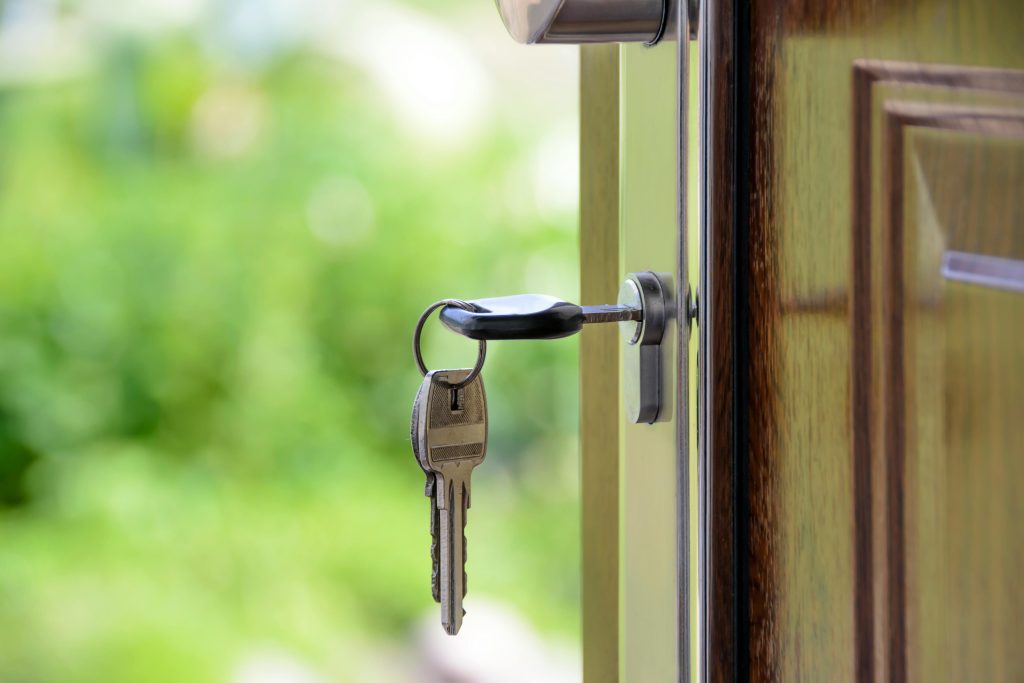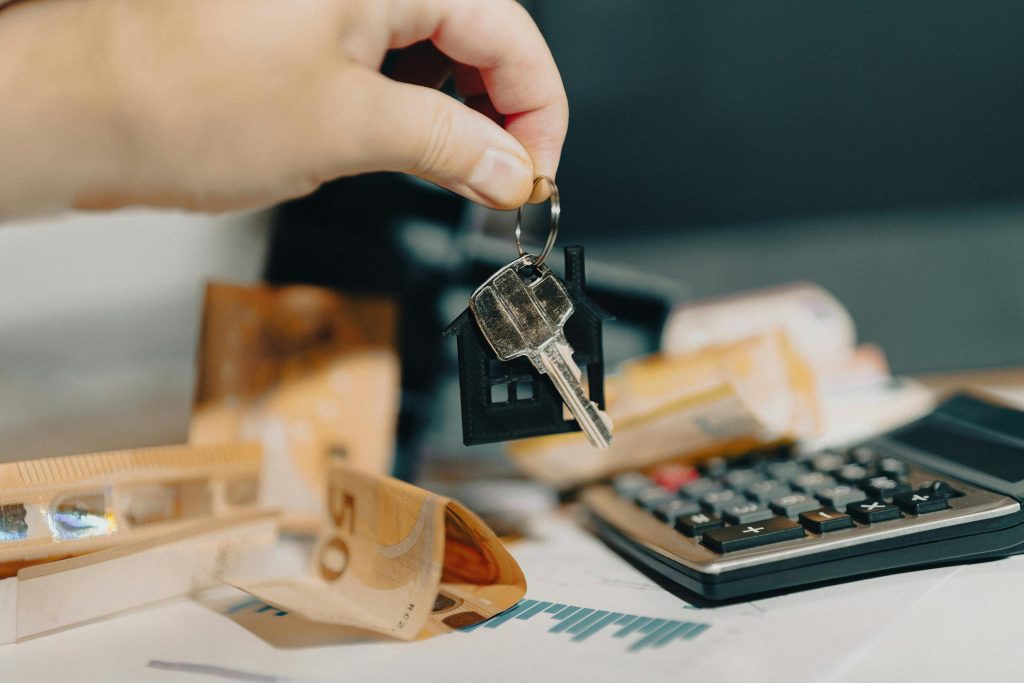Ever walked past a house and thought, “Who on earth owns this?” You’re not alone
This very blog post you are reading gets thousands of visitors each month asking this very question.
Sometimes finding the owner isn’t as straightforward as just knocking the door because many homes are empty or completely abandoned.
Across the UK, there are hundreds of thousands of empty homes — over 676,000 in England alone. A huge chunk of those are just sitting there, abandoned. And chances are, you’ve clocked one on your street or in your patch of town.
So… how do you find out who owns a property – even in these more tricky situations?
Whether you’re a buyer spotting a hidden gem, a neighbour fed up with an eyesore, or just someone curious — you can track down the owner. Even if the property’s been vacant for years. And even if it’s unregistered.
This guide lays out every method we’ve used ourselves — over decades of hands-on property work. You’ll get proper step-by-step advice, pro tips, and a few curveballs that actually work.
Let’s dive in.
Why Bother Finding a Property Owner?
Fair question. Because let’s be honest — it’s not exactly a two-minute job.
But here’s when it’s absolutely worth the effort:
- You want to buy the place. Maybe it’s a fixer-upper. Maybe it’s a plot screaming to be developed. But you can’t make an offer until you know who owns it.
- It’s a safety risk or nuisance. Derelict properties attract pests, vandals, and all sorts. Finding the owner gives you (or the council) a chance to deal with it properly.
- You’re just curious. Sometimes it’s about family history. Other times you’re just nosy (nothing wrong with that). Either way, ownership tells a story.
Now, if the house is lived in, it’s dead easy — just knock on the door. But if it’s empty or derelict? That’s where things get a bit tougher. The owner could be abroad. Deceased. Or hiding behind a company.
Don’t worry. I’ve got you covered.
Start with the Basics: Local Sleuthing
Before you jump into official records, do what we call boots-on-the-ground detective work. It’s old-school, but it works.
Here’s what to try first:
1. Ask the Neighbours
People love to chat about “that house”. Someone always knows something — even if it’s just a surname or a rough idea of when it was last lived in. Ask nicely. You’d be surprised how much you can uncover.
2. Drop a Letter Through the Door
Write a friendly note. Say who you are, why you’re interested, and include your contact details. Some owners do check in occasionally or have their mail forwarded. We’ve had people ring back months later after finding a note behind the front door.

3. Scan for On-Site Clues
Look for:
- Planning notices (might include a name or agent)
- “For Sale” signs with old estate agent details
- Utility company notices
- Letters or junk mail visible inside
Just remember — look, don’t trespass.
4. Speak to Local Businesses or the Post Office
The shopkeeper, postie or pub landlord often knows the local gossip. And if that house has been empty for years, someone’s bound to have a theory or a name.

5. Check the Electoral Register
Bit of a long shot, but still worth a go. You can check the open register via the local council. Learn more about that here. If someone’s been registered to vote at that address recently, it might lead you to the owner or a family member.
By this point, you’ve hopefully got a name. Or at least a decent lead.
Use the Land Registry (England and Wales): Your Fastest Route to Ownership Info
If you’ve got an address — or even just a rough idea of where the property is — the HM Land Registry should be your first port of call. It’s hands down the quickest way to confirm who owns most properties in England and Wales.
Here’s how to use it like a pro:
Step 1: Head to the Land Registry Website
Use the UK Government’s official property search tool. It’s cheap, dead easy, and 100% legit.
Step 2: Enter the Property Info
Got the exact address? Brilliant. If not, there’s a map-based search tool too — perfect for bits of land or homes with faded house numbers.
Step 3: Download the Title Register (£3)
This little document is pure gold. It gives you:
- The name of the legal owner (or joint owners)
- Their address for correspondence (which might be different from the property address)
- The last sale date
- Any mortgage lenders or charges (useful if it’s repossessed)
You can grab this as a PDF right after payment. No faff.
Step 4: Optional — Buy the Title Plan (£3 more)
This shows the boundaries of the property on a map. Handy if you’re not 100% sure the plot you’re looking at is the one you searched. Not vital for finding the owner, but worth it for peace of mind.
Pro Tip: If the correspondence address is different from the property itself, chances are the owner lives elsewhere — maybe a landlord, company, or distant relative.
86% of all freehold property in the UK is on the Land Register. So, chances are stacked in your favour here.
But there’s still a 14% chance that the Land Register won’t have the answer.
When the Property Isn’t on the Land Registry (Unregistered or Really Old Homes)
So… you’ve searched the Land Registry and come up blank. That usually means the property has never been officially registered — often because it hasn’t changed ownership since before registration became mandatory (which, depending on the area, could’ve been as late as the 1990s).
Here’s how to sniff out the owner anyway.
1. Search for Old Title Deeds
Before everything went digital, property ownership was recorded in paper deeds — often stored in a solicitor’s office, the local archives, or a dusty old drawer somewhere.
What you can do:
- Visit the County Council’s Records Office or local archives.
- Ask if they hold copies of old conveyances, wills, or mortgage deeds.
- You’ll usually need a name to search these records — which is why your earlier sleuthing (e.g. neighbours, planning apps, old post) is so crucial.
Not sure which local council is responsible for the area? Use this tool.
2. Check Nearby Land Registry Entries
Here’s a cheeky little move that’s helped us more times than we can count:
Look up adjacent properties on the Land Registry. Why? Because…
- Their title documents often reference shared boundaries, old covenants or even historic ownership involving next-door land.
- You might spot a deed that mentions, say, “John Doe, owner of the adjoining parcel to the east…” — boom, now you’ve got a name to chase.
3. Look at Planning Applications
If anyone’s ever applied to knock down, build on, or even stick a fence round that property, they’ll have had to file something with the local council.
Search the planning portal using the address or map location. Look for:
- Certificate A (means the applicant is the owner)
- Certificate B (they’re not the owner, but they’ve notified them — which might reveal the name)
These applications can go back decades and are public record. Total goldmine.
You can search more recent planning applications online.
4. Contact the Council’s Empty Homes Team
Most councils have a Private Sector Housing team or an Empty Homes Officer.
Now — they won’t give you the owner’s details outright (because, GDPR). But:
- They might agree to forward your letter to the owner.
- Or let you know if the property is already on their radar.
- Or even tell you who’s paying the council tax (often the owner, or someone dealing with the estate).
Just be polite, persistent, and let them know you’re interested in buying to bring it back into use.
5. Use the Bona Vacantia List
In the rare case a property has no owner — for example, if someone died without a will or heirs — it can end up in the hands of the Crown Estate.
Check the Bona Vacantia list (it’s public) for the area in question. If it’s listed, that means it’s in legal limbo and might eventually go up for disposal by the government.
This is a long shot. But if the place really seems abandoned, it’s worth checking.
Lovely. Now let’s talk about what to do once you’ve got a name — because finding the owner is only half the battle.
How to Reach Out to a Property Owner (Without Coming Off Like a Nuisance)
Alright — you’ve done the legwork, pulled the Land Registry, maybe even pieced together a family tree. Now what?
You need to actually contact the owner.
Here’s how to do it tactfully, respectfully, and in a way that increases your chances of getting a reply.
1. Send a Letter to the Owner’s Address
If you’ve pulled their correspondence address from the Land Registry, start there. Post a handwritten letter — polite, to the point, and respectful.
Keep it simple:
“Hello, I hope you don’t mind the direct approach. I believe you own the property at [address]. I’m interested in discussing it with you as there are some matters that I think you’ll want to know about – If you’re open to a chat, I’d love to hear from you. Here’s my number/email. No pressure either way.”
Why it works:
You’re not pushing. You’re making it easy for them to respond. And you’re showing you’re serious — not a time-waster.
2. If It’s a Company — Check Companies House
If the property’s owned by a company (say, “XYZ Holdings Ltd”), you can:
- Search their name on Companies House
- Find the registered office address and the names of directors
- Dig into other companies they’re linked to — often one of those will have a phone number or email listed
You can then try:
- Writing to the company
- Contacting a director via LinkedIn or a business website
- Looking for an associated property agent
Pro tip: Some companies use accountants as their official address — so don’t expect a warm welcome if you call that number. Just use it as a breadcrumb trail.
3. Search for the Owner Online
You’ve got a name. Maybe a town. Possibly an old address. Time to go digital.
Try:
- LinkedIn – good for professionals and company directors
- Facebook – useful for older owners or family members
- 192.com – for people search and past address history (you’ll need credits for full info)
- Google – just plug in the name + town and see what pops up (you’d be amazed)
If the name’s unique, you might get a match instantly. If it’s a common one, you’ll need more info (e.g., previous job, company name, profession).
4. Knock on the Door (If It Feels Appropriate)
If their contact address is nearby — or even across town — a polite knock on the door might be the fastest route.
Just be:
- Friendly — you’re not demanding anything
- Respectful — don’t rock up uninvited at 9pm
- Brief — explain why you’re there, then leave your card or number
This can sometimes cut through months of back-and-forth.
5. Don’t Be Pushy If You Don’t Hear Back
Sometimes, owners:
- Can’t sell (legal reasons)
- Won’t sell (sentimental reasons)
- Don’t care (they’re sitting on it or ignoring it)
Send one polite follow-up after a few weeks. If you still hear nothing — walk away for now. Or keep a quiet eye on the property in case something changes down the line.
When You’ve Hit a Wall: Bring in the Pros
Sometimes, despite your best efforts, the trail goes cold.
You’ve got a name… but no address. Or you suspect the owner’s passed away. Or maybe everything leads to a dead end.
That’s when it might be worth calling in professional help.
1. Use a Tracing Agent
These are specialists in finding people — owners, heirs, long-lost landlords — even if they’ve moved abroad, changed names or disappeared off the map.
They use tools you don’t have access to, like:
- Credit referencing data
- Electoral roll databases (full, not just open)
- Historical address databases
- Insider networks
Expect to pay £50–£200, depending on complexity. Some work on a “no find, no fee” basis.
We’ve used tracing agents before when everything else failed — and more often than not, they get a hit. If the owner’s alive and traceable, they’ll usually find them.
Here’s one that you can consider: https://www.bondrees.com/tracing-agents/
2. Contact a Probate Research Firm (a.k.a. Heir Hunters)
If the owner has passed away and there’s no clear heir or executor, you’ll need someone who knows how to dig into probate records and family history.
Firms like this https://www.hoopers.co.uk/ specialise in:
- Tracing next of kin
- Verifying inheritance claims
- Linking you with estate executors or solicitors
They’re often commissioned by councils or lawyers — but if you think a property has been left in limbo, you can tip them off.
If it’s a genuine unclaimed estate, they might investigate — and eventually track down someone who can legally deal with it (and possibly sell it to you).
3. Use a Solicitor for Legal Leverage
A property solicitor can help with:
- Sending formal letters to the last known address (sometimes that gets more attention than a handwritten note)
- Checking legal encumbrances or charges on the title
- Advising you on adverse possession or forced sale options (like applying for ownership over time if truly abandoned)
Yes, there’s a cost. But if the property is valuable, close to your own home, or causing problems — it might be well worth it.
We recommend: https://www.cbglaw.co.uk/
What If You Still Can’t Find the Owner? (Here’s What You Can Do)
You’ve done everything right. Searched the Land Registry. Knocked on doors. Dug through archives. Maybe even hired a tracing agent.
But still… no owner.
It’s rare, but it happens. Here’s what you can do when the trail runs cold.
1. Consider Adverse Possession (If You’re Brave — and Patient)
This is the legal term for claiming ownership by occupying a property without the owner’s consent — sometimes called “squatter’s rights”.

Sounds bold, but here’s how it works:
- For registered land:
You need to occupy it for at least 10 years, then apply to the Land Registry.
They’ll contact the registered owner, giving them a chance to object.
If they do nothing — and you’ve genuinely treated it like your own — you might get ownership. - For unregistered land:
It’s 12 years of continuous use. No legal owner = stronger claim.
BUT…
- You must not have permission to be there.
- You must use the land as if it were yours — fenced, maintained, exclusive access.
- And you’re risking legal action if the owner reappears.
Not a route we usually recommend unless you’ve got solid legal backing and a cast-iron reason for trying. But in some cases, it’s the only option left.
Get more info on squatter’s rights here.
2. Push the Council to Step In
Local authorities do have powers when a property becomes a serious nuisance or danger.
Here’s what they can do:
- Empty Dwelling Management Order (EDMO):
The council takes over the property for up to 7 years, manages repairs, and rents it out — without needing to own it. Learn more about this. - Compulsory Purchase Order (CPO):
In extreme cases, they can force a sale, usually if the property’s unsafe or causing real harm to the community. Learn more about this here.
As a private individual, you can’t trigger these — but you can lobby the council.
Speak to:
- The Empty Homes Officer
- Your local councillor
- Or even submit a Freedom of Information request to check if any action’s been proposed
We’ve seen a few properties end up sold via auction after a CPO — not always to the original enquirer, but at least it got the place back into use.
If in Scotland you can check out this full published list of Empty Homes Officers.
3. Just Keep Watching
Sometimes, the best move is to stay patient.
Watch for signs like:
- Grass being cut
- Mail being picked up
- Notices posted by utility firms or the council
These might signal the owner (or their rep) has resurfaced. When they do, you’re already one step ahead — with the research, interest, and possibly an offer ready to go.
Almost Every Property Has an Owner
Even if it’s the Crown. Or a distant heir. Or a council.
It just takes time, persistence, and the right approach to connect the dots. You might not get a yes, or even a reply — but by following this guide, you’ve done more than most ever would.
You’re not just a curious neighbour anymore. You’re a proper property detective.
How We Can (and Can’t) Help at Property Rescue
By now, you’ve got the full toolkit to track down a UK property owner — even if the place looks like it hasn’t seen life since the 80s.
But let’s clear something up:
We don’t offer an owner-finding service.
We get asked that a lot — “Can you find out who owns this house for me?” The answer’s no. That’s why we created this guide. To empower you to do it yourself, using the same steps and tools we use when we’re researching tricky properties.
That said, there’s one big way we can help…
We Buy Problem Properties — Fast, No Fuss
Once you do find the owner — and they’re ready to sell — that’s where we step in.
We specialise in buying:
- Derelict or empty homes
- Run-down rentals
- Homes with legal, structural or financial issues
- And properties that feel like too much hassle to sell the usual way
We make cash offers, move fast, and sort all the paperwork. No estate agents. No viewings. No long chains.
We’ve had cases where an overwhelmed owner finally agreed to sell — and we had the deal done in 48 hours.
Leak in the roof? No kitchen? Doesn’t matter. We’ll still buy it, fix it, and sell it on. This is perfect if there’s an eye-sore property and its dragging down property values in the neighbourhood.
So if you’ve done the detective work, and the seller’s keen — drop us a line.
We’ll buy it, doll it up to perfection, and get a new owner for it.
FAQ: Finding Property Owners in the UK
Q: Can I find out who owns a property for free?
Yes — to a point. You can:
- Ask neighbours
- Check old planning notices
- Search social media
- Peek at junk mail
But to get official records, you’ll need to pay £3 for the Land Registry title. For that, you get the owner’s name, address, and legal details. Bargain.
Q: What if the property’s in Scotland or Northern Ireland?
Same process, different portals:
- Scotland → Use ScotLIS via Registers of Scotland
- Northern Ireland → Go through LandWeb Direct
Each lets you search and download ownership records for a small fee (usually £3–£5).
Q: I’ve found the owner… but they’re not replying. What now?
Annoying — but common. You can:
- Send a friendly follow-up
- Try a different method (letter, LinkedIn, door-knock)
- Ask the council to act as a go-between
- Or just wait and try again later
Whatever you do — don’t hassle them. One polite nudge is enough.
Q: Can I claim an abandoned property through adverse possession?
Technically, yes — but it’s not easy.
- For registered land: 10 years of occupancy, then apply via Land Registry
- For unregistered land: 12 years of exclusive, hostile possession
You’ll need legal advice, rock-solid evidence, and a lot of patience. It’s not a shortcut — it’s a long game.
Q: Will the council give me the owner’s details?
Not directly — thanks to GDPR.
But they might:
- Forward a letter to the owner
- Share info if you file a Freedom of Information (FOI) request
- Take enforcement action if the property’s unsafe
Ask to speak to the local Empty Homes Officer. They’ll know the score.
Q: How long does a Land Registry search take?
A few Minutes. Here’s the steps
- Go to the site
- Press the big green button at the bottom of the page
- Enter the address
- Pay £3
- Download the title PDF
Done. No waiting. No paperwork.
Sources and References
- HM Land Registry – Official Guidance: “Searching for the owner of unregistered land.” Contains tips on finding owners of unregistered properties, including checking neighbours, local records, and planning applications hmlandregistry.blog.gov.uk, hmlandregistry.blog.gov.uk.
- Action on Empty Homes – Advice: “How do I find the owner of an abandoned property?” – Recommends asking neighbours, using the Land Registry, local authorities, etc.. https://www.actiononemptyhomes.org/find-owner
- UK Government – Land Registry Service: “Search for land and property information.” Explains how to get title registers in England/Wales (including owner’s name) for a £3 fee hmlandregistry.blog.gov.uk and equivalent guidance for Scotland/Northern Ireland ros.gov.uk.
- House of Commons Library – Empty Housing (England) Report: Gives statistics on empty homes in England (676,000 total empty in 2022, with 248,000 long-term empty) and discusses councils’ powers to bring empty homes back into use commonslibrary.parliament.uk, commonslibrary.parliament.uk.
- Finders International (Probate Researchers): “Find Ownership of Property.” Describes how professional researchers trace owners via land registry, tax records, probate, and more, useful for cases with deceased or missing owners.








